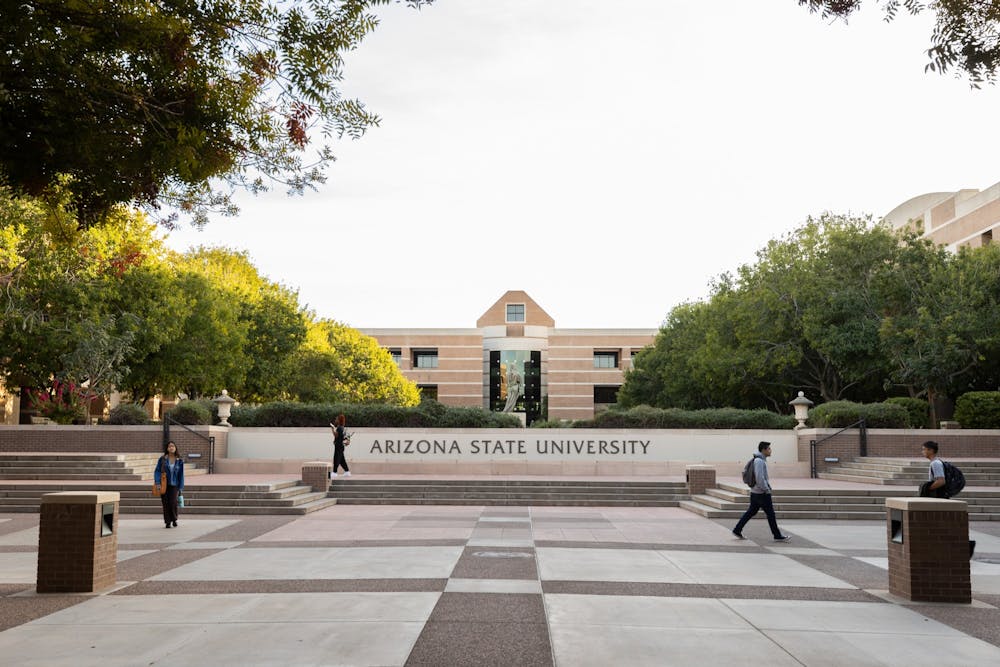ASU's New College and the Arizona Supreme Court are teaming up to advance the field of forensic studies with the new Arizona Supreme Court Center for Forensic Science and Psychology. The Center will focus on bringing a more efficient method of conducting research for forensics and mental health to be used as part of legal proceedings across Arizona.
In a press release, Arizona Chief Justice Robert Brutinel said the program is a first of its kind, and its mission "promises to examine and disseminate the most up-to-date understanding, training, and application of forensic science and forensic psychology as applied to various case types."
Todd Sandrin, the dean of New College, located on the West campus, said this partnership will be mutually beneficial.
"(The Arizona Supreme Court) would appreciate a partner like ASU to help ensure they have the knowledge and resources necessary to advance justice as effectively as possible," Sandrin said.
The program is a continuation of the work of Tess Neal, an associate professor at the School of Social and Behavioral Sciences and director of the Future of Forensic Science Initiative (FFSI). The mission of the initiative is to address challenges facing the legal system through the use of practice-based research and to educate the next generation of forensic professionals.
After moving to Arizona, Neal was required to participate in a training program to keep her practitioner's license. Neal said Arizona’s Supreme Court is responsible for training judicial practitioners.
“I went to this training and wanted to become more involved because I saw some areas for intersection with the University that weren't happening," Neal said. "It started initially as that forensic psychology connection, but then things evolved pretty quickly.”
Neal said she saw potential in this exercise and felt that it should be expanded beyond just practitioner training. With the help of Sandrin and the executive board at the FFSI, that connection will develop towards extending across all practices of forensic science.
Jennifer Albright, director of the new Center said the Arizona Supreme Court and other experts within Arizona's legal system will provide instruction through a series of videos that will be available to ASU students and alumni. The videos will provide practical, skills-based teachings and information about the different fields one can pursue within forensic science.
“ASU asked the court to participate in a series of one-hour videos that we’re going to put together directed for students to say: here are some things about forensic science ... What are some job opportunities? What are some research opportunities? What are the different fields you can go into?" Albright said.
The program will also provide mentor-based internships and research opportunities for students. The Supreme Court and ASU instructors will work in conjunction to create projects throughout the various fields of forensic science where students can assist legal professionals and scientists in their work.
“Students are going to look at data from how it was in the executive agency and help the courts understand how many cases there were, what types of offenses they were, what types of different hearings there were," Albright said.
Albright said two students in a statistics class at New College are already working with the state Supreme Court to analyze types of offenses and the number of cases and hearings where the defendant was deemed "guilty but insane" in Arizona.
The program is a hub for the Arizona legal system and ASU students to give and take from. Albright emphasized the innovative nature of the program and said all parties involved have a lot to gain in the future.
"No state has done anything like this before, it's brand new," Albright said. "There’s a lot of excitement around it and there are a lot of people this will provide benefit for."
Edited by Shane Brennan, Reagan Priest and Luke Chatham.
Reach the reporter at pjhogan2@asu.edu and follow @PhineasHogan on Twitter.
Like The State Press on Facebook and follow @statepress on Twitter.




